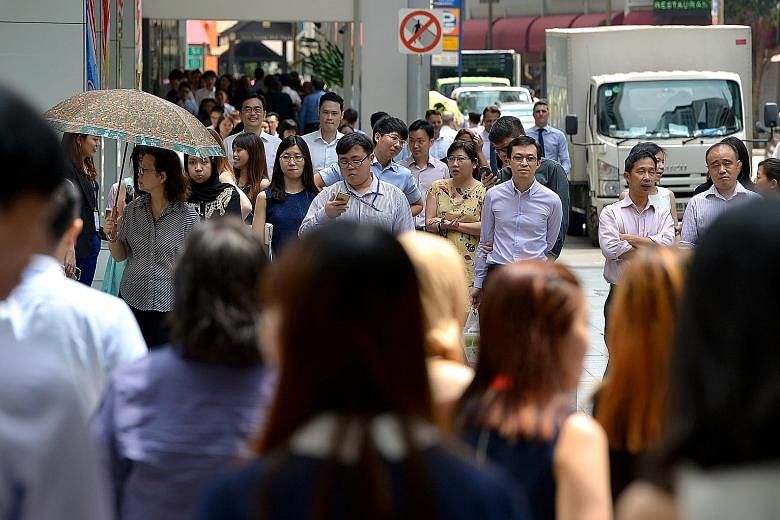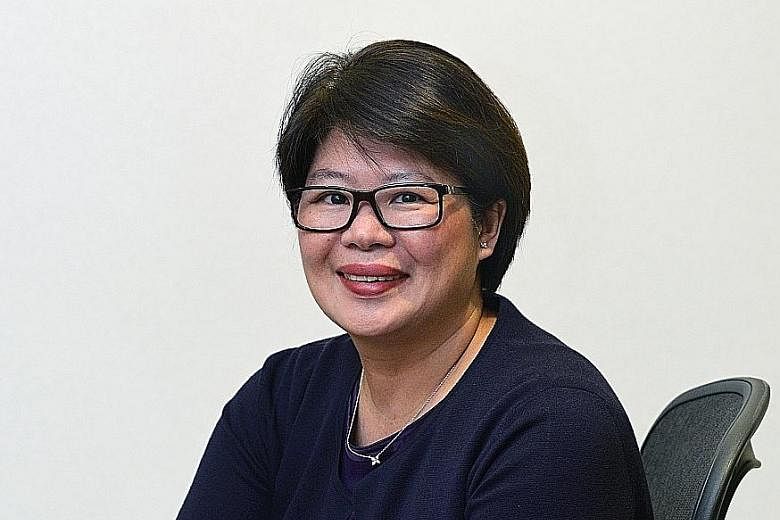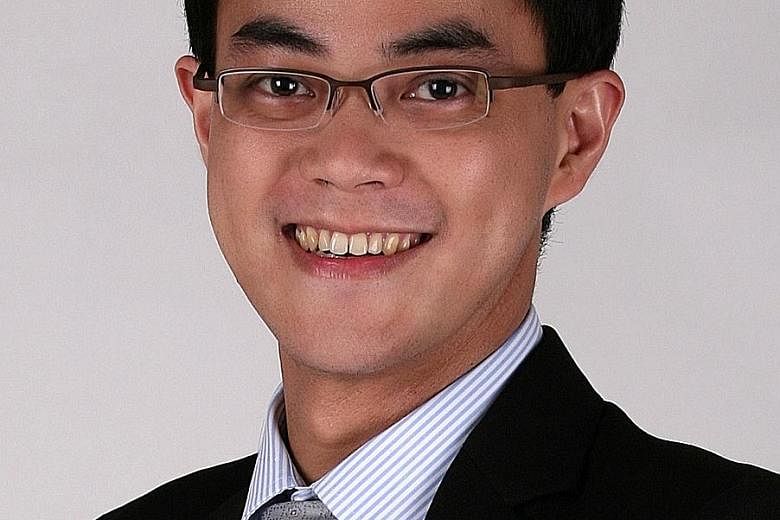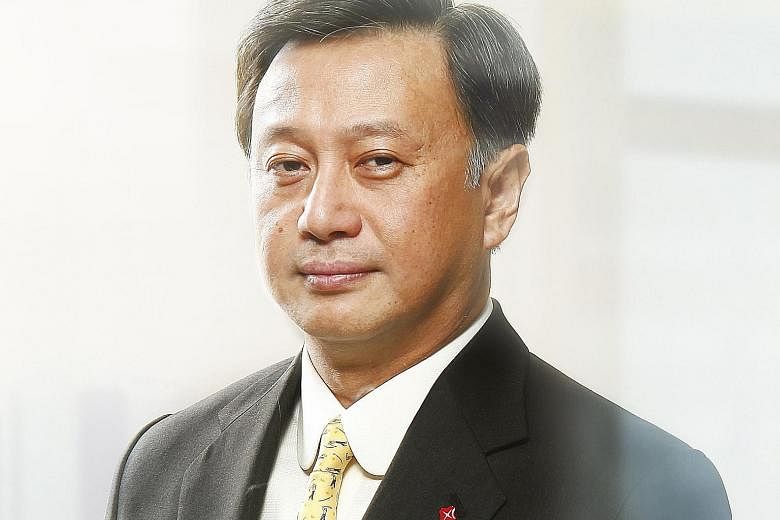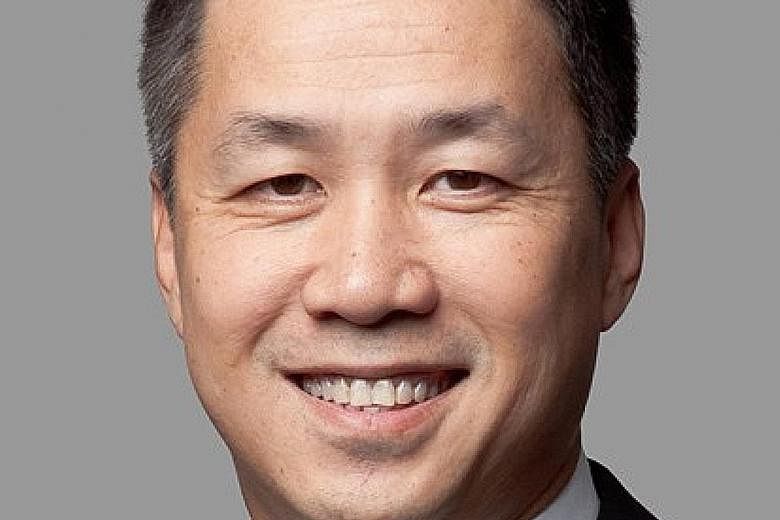Q Our workforce and leaders in 2035 are in pre-schools and primary schools today. How would you change education to prepare them for this future?
EY's Mr Loh Current education approaches are based on current labour models. We will need a future- ready workforce that is smart, secure and resilient for a digital-led and globalised work environment. This calls for more than just a curriculum revamp in schools. Educational institutions must be bold in experimenting with learning options that can provide an enlarged and deepened focus on skills activism and mastery, while exploring institution-to-institution collaborations to embed cross-disciplinary education and international exposure.
We should also increase the appetite for modular learning that develops skills to precisely fit tasks, which will be increasingly salient in a "gig" economy where jobs are modularised, as well as inculcate the values and skills of entrepreneurship for an innovation economy. The silver generation's wisdom and experience can be a form of highly valued intellectual capital, and they could be tapped to deliver mentorships as an added dimension to learning.
DBS' Mr Lim We don't know what the jobs of tomorrow will be, but we do know some of these jobs may not even be present today. We need to understand what has impacted the world in the last quarter century and what we think will define the world in the next 25 years.
The last 25 years were defined by digitisation; the next 25 years will be defined by advanced artificial intelligence.
We have artificial narrow intelligence. We are on to artificial general intelligence and the next stage will be artificial super-intelligence. While basic science will always be important, we also need to start teaching our children basic coding.
More importantly, we must have a culture that encourages innovation, risk-taking, acceptance of failure and out-of-the-box thinking. If we can inculcate the right culture, Singaporeans will be able to adapt and know how to take advantage of the next wave of opportunities.
Q Given the changes taking place, what will you and your company look for in future batches of people whom you hire? And how will the meaning of a "career" change in the coming decades?
DBS' Mr Lim Some basic requirements - such as integrity, intelligence, leadership skills and the ability to think - are core to success, and we will continue to look out for these traits. We will also consider students from any discipline who have outperformed their peers as this reflects their ability to do well. We also believe in strength in diversity, as recruiting students with different backgrounds can only help challenge us to think and approach problems from different angles.
In the coming decades, we suspect that there will be another group of people, at a different stage of their careers, who may want to contract their services and work at their own time, pace and schedule.
This work will be project-based. There will be an "Uber of services" that will enable people to be hired for their specialised skills. These individuals will be entrepreneurs and they will continually learn, experiment, adapt and be an authority on their areas of interest.
EY's Mr Loh With the accelerating pace of change brought about by digital disruption and globalisation, companies will be competing fiercely for a coveted pool of highly skilled labour with international exposure to fill new roles and manage cross- border teams. Companies will need to not just hire for different skill sets and diversity, (but) also hire and lead those teams differently. As technology drives the unbundling of jobs, workers may increasingly be hired on a contingent and contractual basis.
When the workplace transforms, employees will necessarily reset current fundamental assumptions of a "career". For example, it will be common to work for multiple employers at a single point on a project basis.
Employees will no longer be confined by geography, profession or industry in their career moves, but be liberated to enjoy opportunities based on the skill sets they can offer.
Formal academic qualifications will still lay the foundation for functional skills but may well become less significant as broader and integrated skills mastery and experience become more salient.
Q Would Shell be a different company by 2035? As a major if not the largest energy company in the world, what are Shell's strategies in making the world a better place, with abundance, lower-cost energy and a cleaner and healthier living environment?
Shell's Ms Goh Shell as a company will change because global demand for energy will grow (and) there are likely to be dramatic changes in the types of energy consumed in the decades ahead.
While the pace of change will differ depending on where people live and what they can afford or are willing to pay, the energy system is and always will be the outcome of government policies and consumer choices.
Shell has a track record of successfully adapting our business model and delivering profitable growth over more than 100 years.
There will continue to be commercial opportunities for Shell in oil and gas for decades to come, providing a foundation to position the company successfully for the energy transition to a lower-carbon system.
In the near term, this means growing our natural gas business and adapting our portfolio. Over the longer term, we plan to develop a new and profitable lower-carbon new energies business.
At Shell, we have long recognised the importance of climate challenges, along with the ongoing critical role that energy plays in enabling a decent quality of life for people across the world.
We know our long-term success as a company depends on our ability to anticipate the types of energy that people will need in the future, in a way that is both commercially competitive and environmentally sound.
Q Dr Loh's future of healthcare (where technology could usher in a new era of "hospitals without walls" and where healthcare is predictive rather than reactive) is great for patients, but have we considered the cost of medical advances on the providers: loss of jobs, an always-on culture of service, never-ending retraining, et cetera?
Parkway's Dr Loh With the ageing population, healthcare workers will be in even greater demand in the future. In fact, chronic shortage of healthcare workers may still be the norm by 2035.
We can relieve some of these pressures by cleverly leveraging technology to improve healthcare processes. The convergence of medical and consumer technology will enable healthcare workers to find, and be retrained to deliver, new ways of providing care, including remotely monitoring patients.
Patients will be empowered to do more self-care. Improvements like these will increase the productivity of each healthcare worker and help mitigate cost increases.
